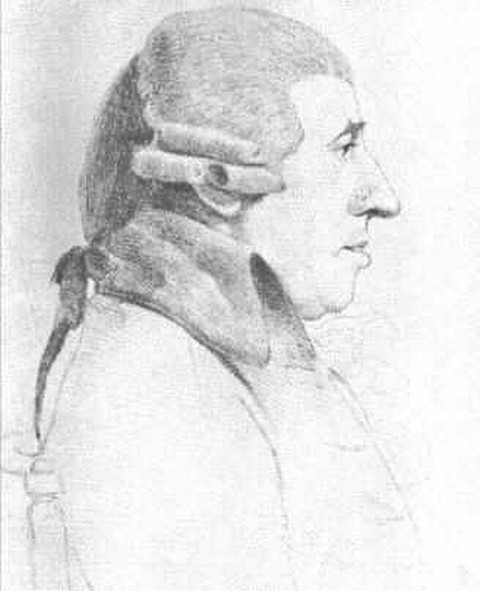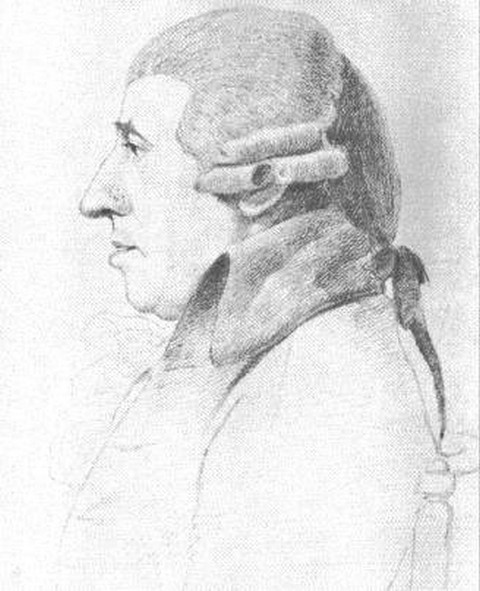
Sponsored Ads
|
» Home
» People » Joseph Haydn Austrian and Croatian composer died 200 years ago
» Home
» In Memoriam » Joseph Haydn Austrian and Croatian composer died 200 years ago
» Home
» Culture And Arts » Joseph Haydn Austrian and Croatian composer died 200 years ago
» Home
» Music » Joseph Haydn Austrian and Croatian composer died 200 years ago
| Joseph Haydn Austrian and Croatian composer died 200 years ago |
| By Prof.Dr. Darko Zubrinic |
Published
05/22/2009
|
People , In Memoriam , Culture And Arts , Music
|
Unrated
|
|
|
|
Joseph Haydn exploited themes from Croatian musical folklore
 Joseph Haydn (1732–1809), born in a Croatian ethnic enclave in Burgenland (Gradišće) in Austria. Pencil sketch by George Dance, 1794.  "V jutro rano se ja stanem" - "I wake up early in the morning", Croatian folk tune which was the basis for Joseph Haydn's Volkslied (Folk song), as he named it.  Later this Haydn's tune became Austrian national anthem. Now it is the German national anthem that everybody knows. Sheet music by Sir William Hadow, from his monograph "A Croatian Composer", London 1897.
A CROATIAN COMPOSER NOTES TOWARD THE STUDY OF by Sir William H. Hadow First edition in 1897, London (Seely and co. limited),
reprinted in 1972, New York (Books for Libraries Press, Freeport, New York) ...if we accept the historical statement as true, we do something to rescue a musical nation from undeserved neglect. The race which has given to a master not only birth but inspiration may surely claim from us someting better than oblivion into which we have allowed its name to fall. [from Hadow's PREFACE, Oxford, 1897] EXCERPTS from the book: Subsection titles given by Darko Zubrinic. Hadow's original text goes in continuo.
Related references: - Frano Kuhac: Josip Haydn i hrvatske narodne popijevke, Vienac, Zagreb, 25. ozujka 1880. (Joseph Haydn and the Croatian Folk-songs, Agram, 1880);
- Academician Lovro Zupanovic
- Andjelko Nedo Paveskovic (Monte Carlo): Skladatelj Josip Haiden (Haydn) Hrvat ili Nijemac? (Was Josip Haiden Croatian or German?), Poljica, Gata, 2001, broj 26, pp. 61-107;
- word files (in Croatian): 61-62.doc, 63-67.doc, 68-79.doc, 80-89.doc, 90-99.doc, 100-107.doc (here with kind permission of Rev. Frane Mihanovic, editor in chief of Poljica)
- several interesting items from this long paper:
- Until 1954, the well known Grove's Dictionary of Music and Musicians, London, accepted the opinion of Haiden (Haydn) as the Croat (and since that year accepted the opinion of Schmid about his alledged German roots)
- Dutch historian of art Henrik van Loon (in 1937) and Canadian historian Murray Gibbon (in 1938) pointed out to the political motivations in these questions, and that it should not be alowed to "Teutons" to deny Croatian roots of Haiden
- Larousse Musique in 1957 considers the Slavic - Croatian roots of Haydn possible.
- Sir Kenneth Clark, in his TV presentation The Civilisation (famous for his book having the same title), shown by Swiss - Italian TV in 1970s, claims Haiden to be the Croat
- Anthony Hodgson in his book The Music of Joseph Haydn (London, 1976) considers Hayden to be the Croat born in Trstenik (Rohrau), and stresses notable presence of Croatian folk melodies in Heidens's famous symphonies
- [Remark by D.Z.: Let us mention a very nice and lively presentation of Haydn's person and music by Leonard Bernstein, USA, in his TV show, where Bernstein was obviously citing long passages from Hadow's book (stressing among others "non-Teutonic" character of Haydn's music and his personal appearance), without mentioning neither the book, nor its significant title, which we recall again:
A Croatian Composer;
Notes towards the study of Joseph Haydn] - Hayden included in his music about 30 Croatian folk melodies!
- Haydn's melody Gott erhalte (German National Anthem) is evidenced from Croatian Littoral and environs of Zagreb to Medjimurje on the North, and to Gradisce (Burgenland) in Austria
- El compositor Jose Haiden (Haydn, 1732-1809) y los Croatas (Con motivo de 190 anos de la muerte del compositor)
- El compositor Jose Haiden (Haydn, 1732-1809) y los Croatas (La presencia croata en Gradisce)
- Franz Joseph Haydn, based on the Encyclopaedia Britannica from 1911
- Sir William H. Hadow, Croatian Composer, Hrvatski Skladatelj, Josip Haiden, (Croatian - English edition), Naklada E. Cic, Zagreb, 2005, 160 pp, ISBN 953-98968-3-5
|
Here we reproduce the concluding paragraph of Haydn's short biography presented by MusicaClassica: A distinguishing trait of Haydn's works was his frequent use of Croatian folk music for his melodic material. Wrote W. H. Hadow: "The Croatian melodies are bright, sensitive, piquant, but they seldom rise to any high level of dignity or earnestness. They belong to a temper which is marked rather by feeling and imagination than by any sustained breadth of thought, and hence, while they enrich their own field of art with great beauty, there are certain frontiers which they rarely cross, and from which, if crossed, they soon return." Even many of Haydn's original melodies are characterized by typical rhythmic and melodic qualities to be found in the Croatian folk songs. However, as Franze Bellinger has added, "Haydn's speech, like that of every genius, was not only that of his race, but of the world." To these Croatian characteristics, Haydn added his high inspiration and sensitivity, and produced a type of melody which, for the most part, is unmistakably his. Haydn is a common Croatian family name. In the Croatian telephone book you can see the names of Hajdin, Hajdina, Hajdinjak, Hajdinac, Hajdinovic: 63 families in the Zagreb county, 91 families in Medimurje and Varazdin counties, 65 families in Primorsko-Goranska county; and altogether 320 families in the whole Croatia (1999). There is a village of Hajdine near Vrbovsko in Croatia, on the main road to Rijeka, and the village of Hajdin near Vojnic. The name Hajdin (= hajda's) is derived from hajda = buckwheat. Parents of Franz Joseph Haydn are Mathias Haiden and Anna Maria Haidin, as can be seen on their grave in the Rohrau cemetery even today. This is stated by outstanding Croatian musicologist academician Lovro Zupanovic in his afterword to the book of [Kuhac, pp 305-306]. Academician Zupanovic stated also the following: "It is a pity that in his time Kuhac did not know for team work, or could not (was not allowed to?) accomplish. Otherwise - the redactor [ie. Zupanovic] is firmly convinced on the basis of own experience - ... that for half of names listed [by Kuhac] in his Hystorical introduction he would have no problems in proving their Croatian descent. This especially holds for Franz Joseph Haydn..." (see [Kuhac, p. 305]).
|
 Joseph Haydn (1732–1809), born in a Croatian ethnic enclave in Burgenland (Gradišće) in Austria. Pencil sketch by George Dance, 1794. Source of the photo Classical Music Pages. Formated for CROWN by prof.dr. Darko Žubrinić
Distributed by www.Croatia.org . This message is intended for Croatian Associations/Institutions and their Friends in Croatia and in the World. The opinions/articles expressed on this list do not reflect personal opinions of the moderator. If the reader of this message is not the intended recipient, please delete or destroy all copies of this communication and please, let us know! |
Related Articles
Related Links
|
|